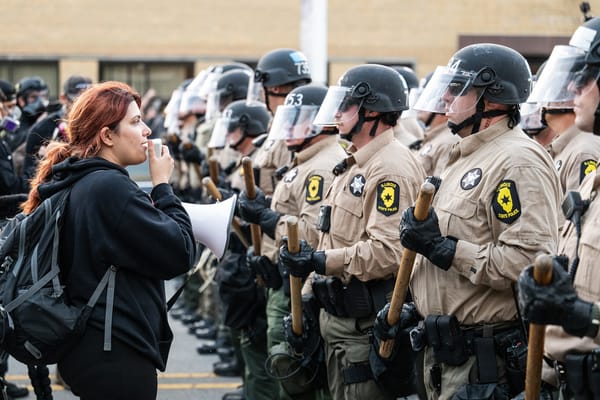Vaccinated
I’m fully-vaccinated today: I got my second Pfizer jab two weeks ago. According to new guidance from the CDC, I can go without a mask in most situations. The official CDC page is really clear, and reporting has been generally good. I feel safe - but like many people, I will still choose to wear one, even in situations where I am not required to, for a while.
A lot of people aren’t so lucky. In India, where I have friends and coworkers, everyone I speak to seems to have lost a friend or relative. The official numbers woefully undercount the dead: conservative estimates put it at twice the official number, and I’ve heard as high as ten times.
Broken medical supply chains have left families to source oxygen for themselves; even empty oxygen canisters, which can be refilled, are in short supply. My friend Padmini Ray Murray has set up a COVID-19 and oxygen supply resource page for Bangalore, and is helping to crowdsource oxygen availability in the region.
Meanwhile, the United States has been hoarding vaccines, while countries like India may not get vaccinated until 2023. COVAX, a global vaccine initiative, has been underfunded, and rich countries didn’t arm it with the vaccine supplies it needed. Manufacturing capacity is bottlenecked. And even though some countries (including, to its credit, the US) have agreed to waive vaccine patent rights, the tests and technology transfers involved are also bottlenecked. More help is needed, and quickly; without meaningful assistance, vaccine waivers and COVAX pledges start to look more like PR for rich countries than an actual effort to vaccinate the world.
Some have argued that vaccine patent waivers should not be issued, because of the effect on innovation. I, and others, think this falls squarely into the bucket of solvable problems: information sharing mechanisms and economic incentives can be provided in other ways. The focus right now must be on saving lives, not saving capitalism.
It’s also common in a global crisis for the burden to be placed on individuals: in this case, there are plenty of community fundraisers for COVAX. I’ve donated and, if you have the means, I recommend that you do too: buying a single dose for someone in need costs $7. But the focus should be on governments and large corporations to donate and help as much as they can; our focus should be at least as much on pressuring them to do the right thing as convincing our friends and neighbors to put some money in.
I have both friends and family who still don’t believe that COVID-19 is a real threat; who don’t trust the vaccine; who don’t believe in the science or the reporting. In the midst of a genuinely global crisis, not having the real-world effect of watching your friends and family succumbing to the disease is a kind of privilege. Elsewhere, they would not have the luxury of being so ignorant.
And I wouldn’t have the luxury of feeling the freedom I do today. I’m excited to be able to see my friends again; to travel; to eat at a restaurant; to gather and share and be social. I hope the whole world is able to share in this freedom. We are no more deserving than they are.
Photo by Spencer Davis on Unsplash


